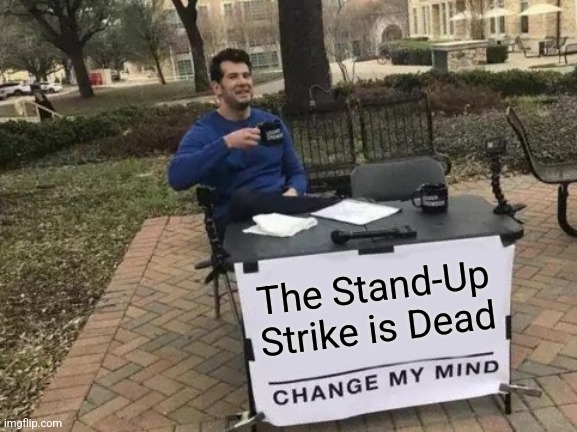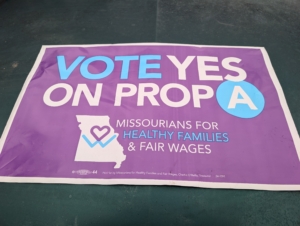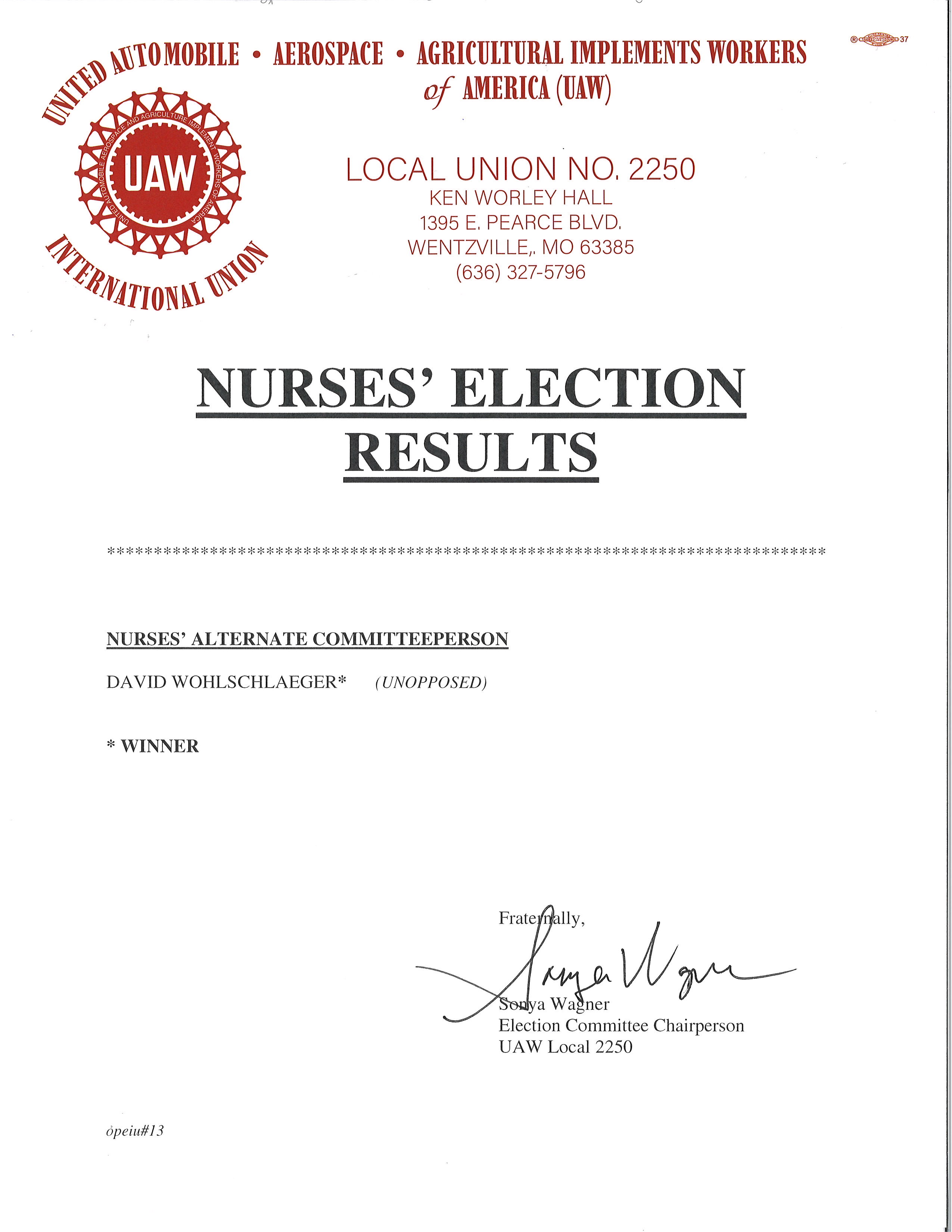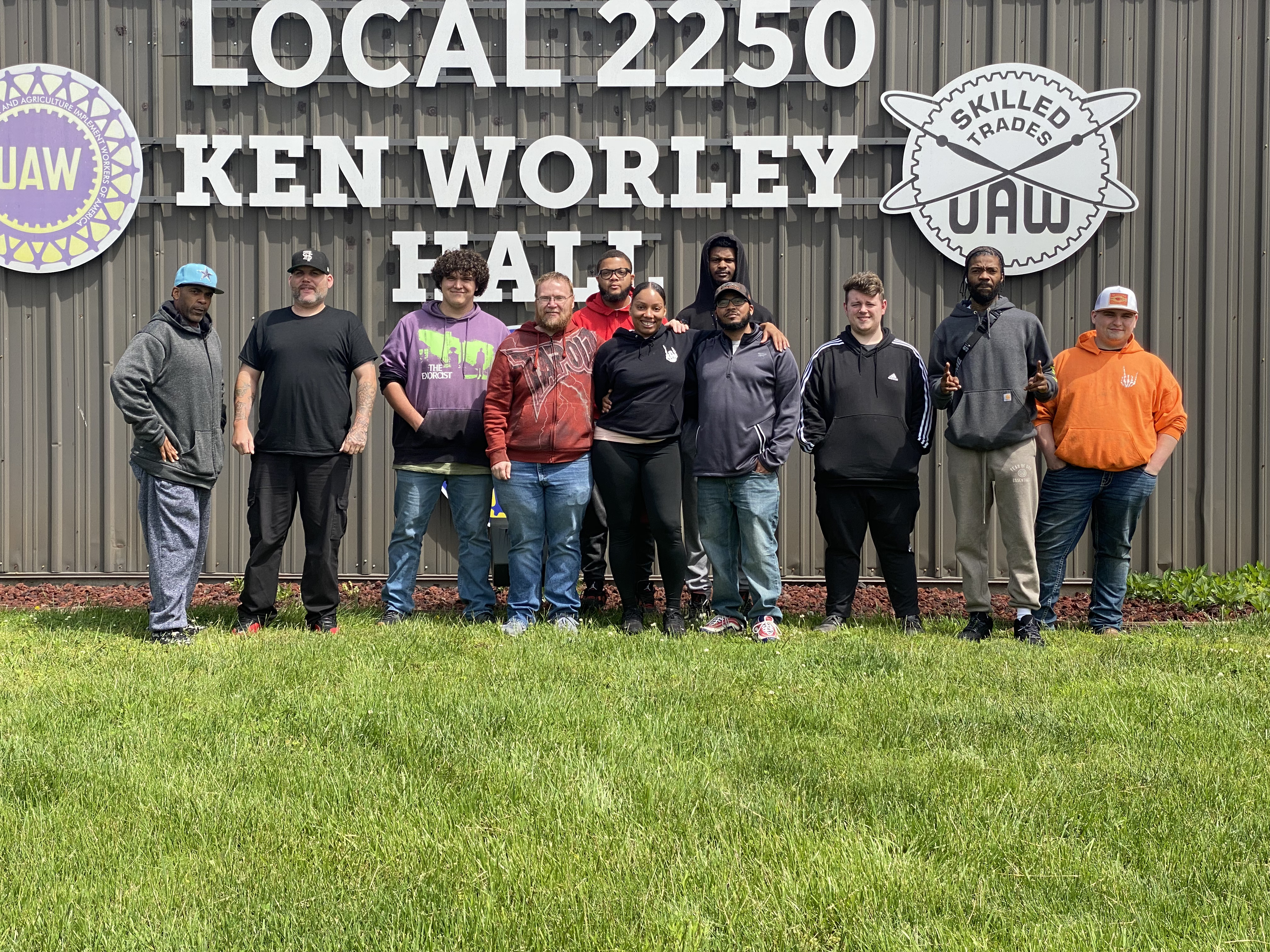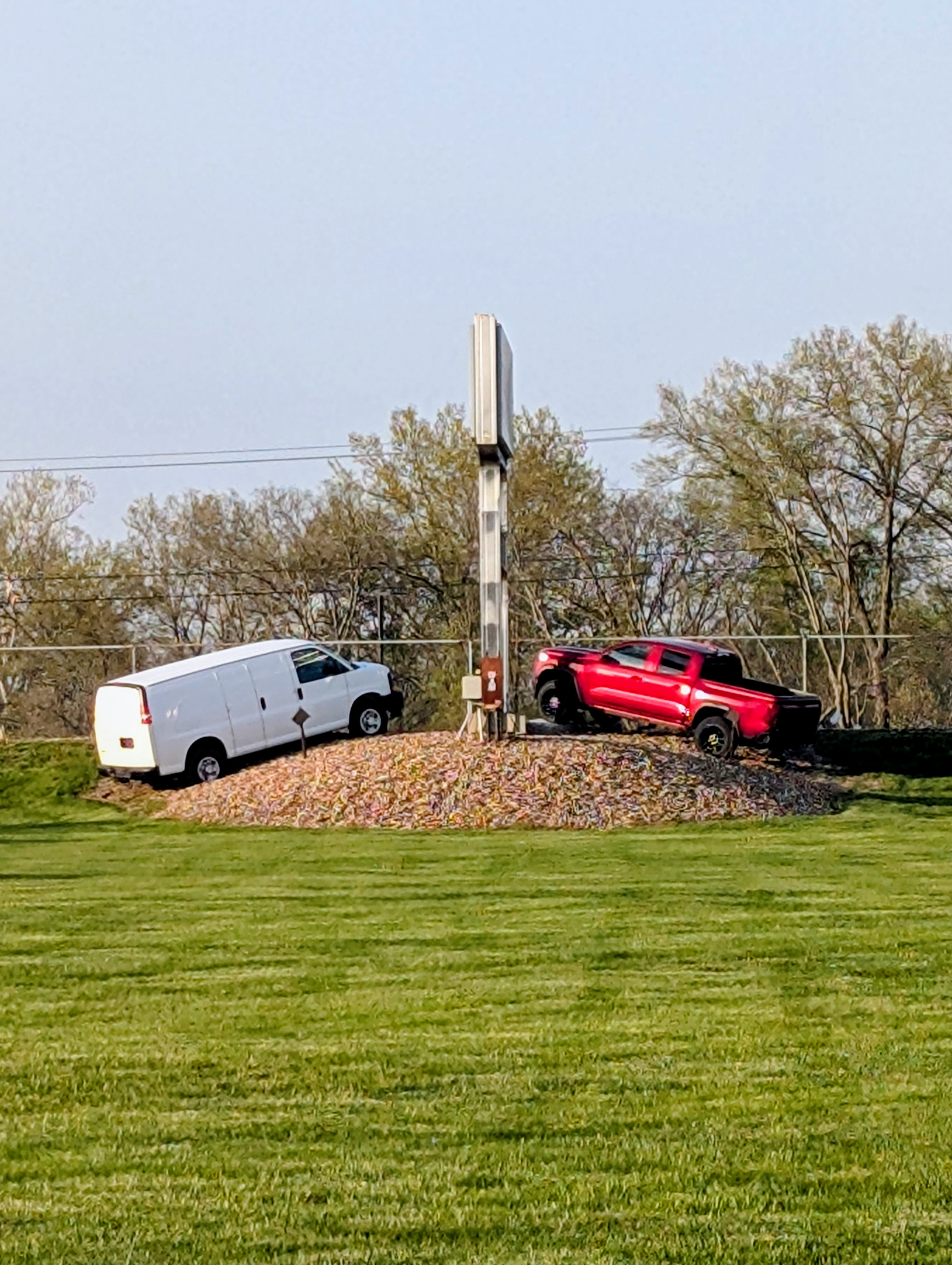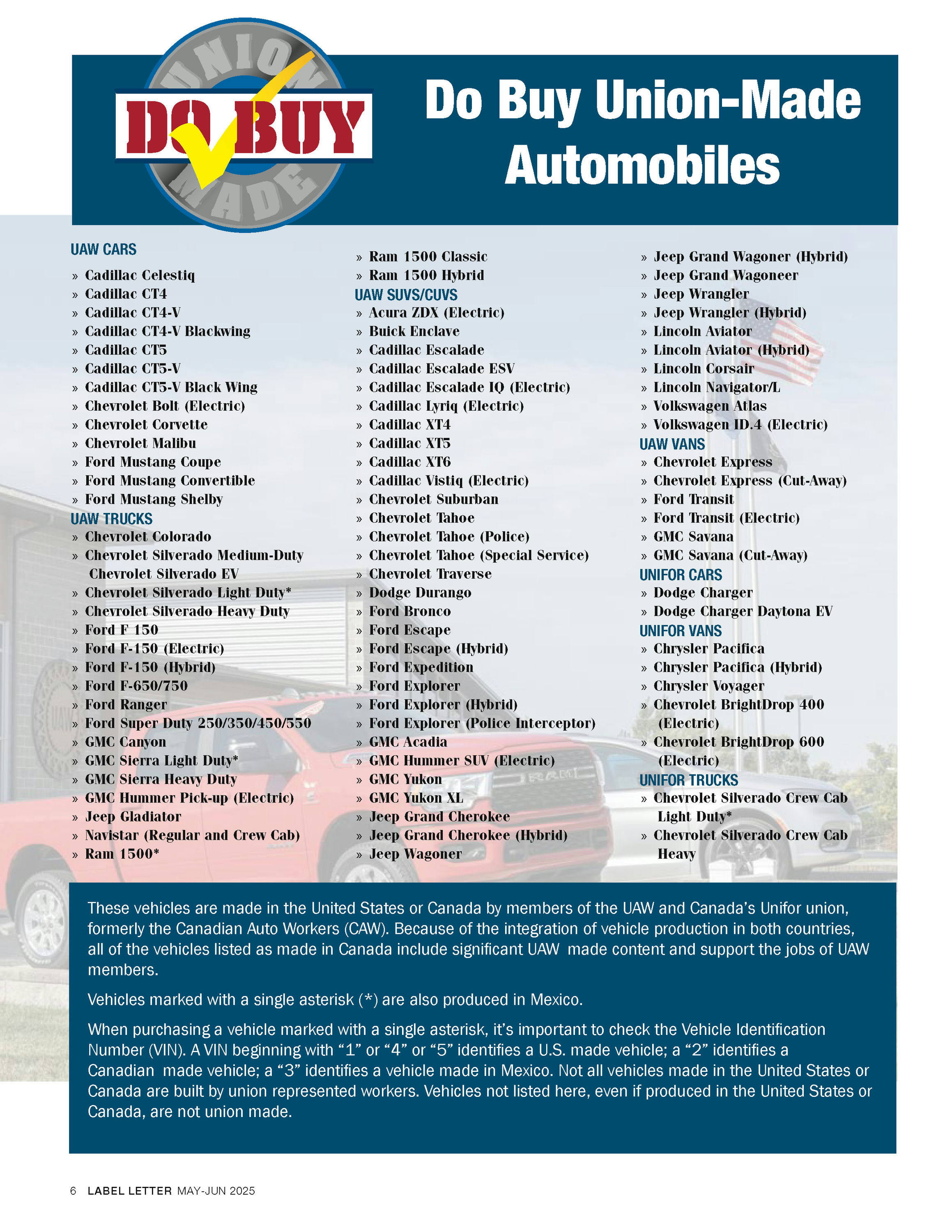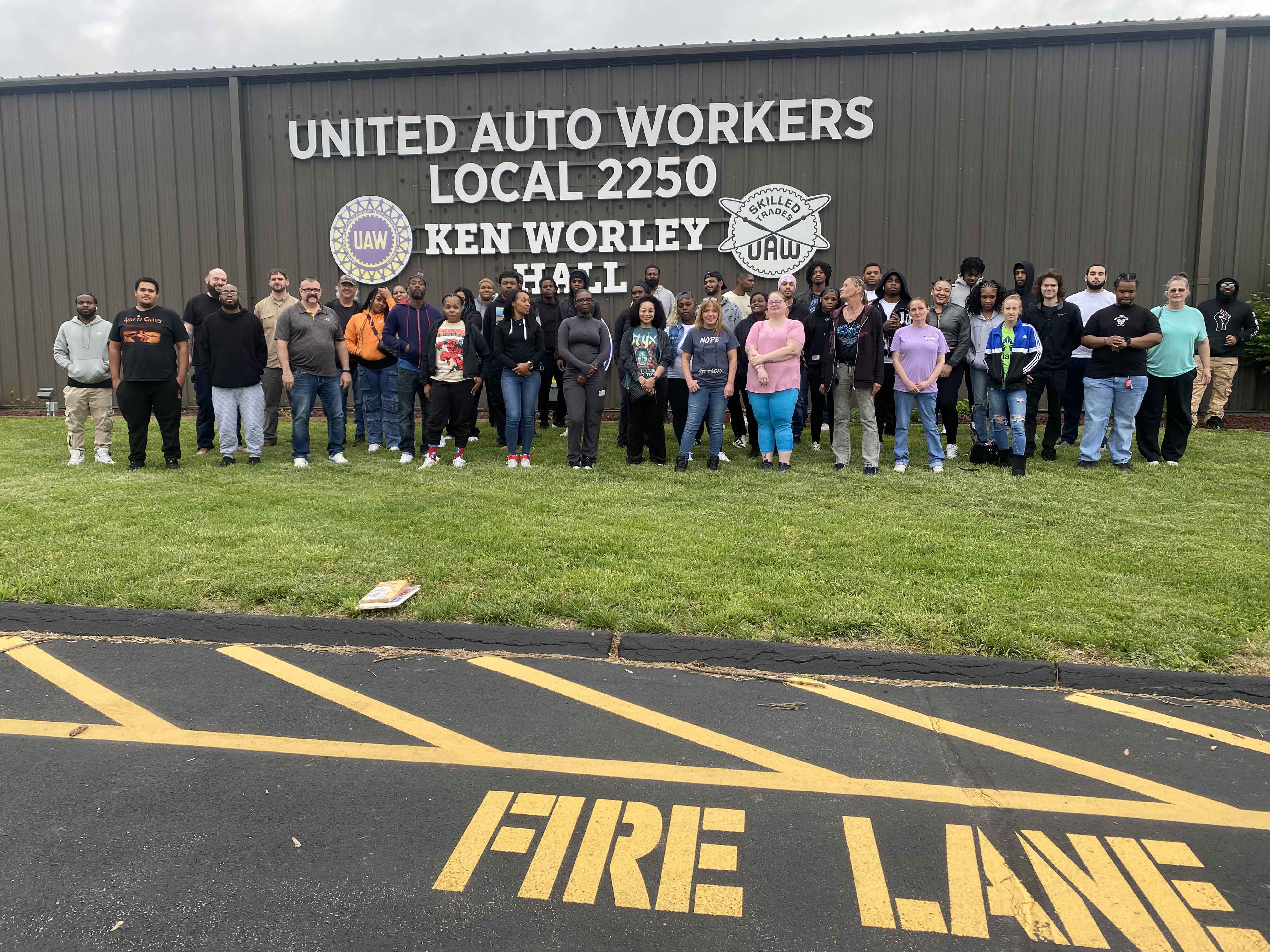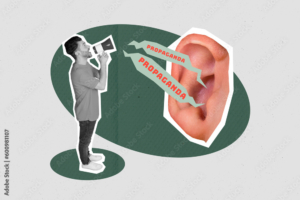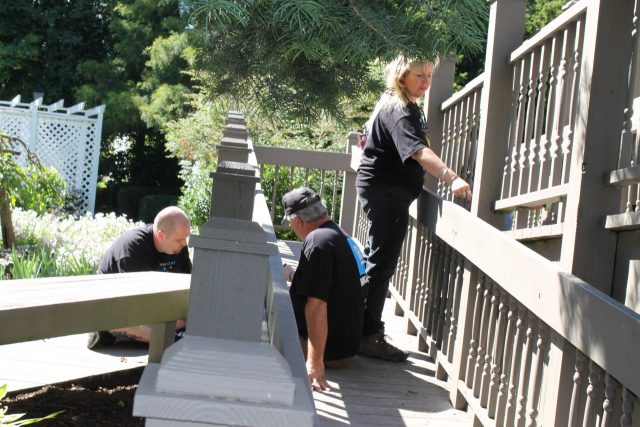-
Rejpulican State Senators Just Repealed Paid Sick Leave - May 15, 2025
-
It’s Time For The Annie Malone Parade! - May 14, 2025
-
Are You The Reason Cars Are So Expensive? NO! - May 13, 2025
-
A New Pope (From America): More Support For Worker Rights! - May 11, 2025
-
Nurses’ Election Notice: Congratulations Dave! - May 9, 2025
-
Please Say Hello To The 11 New Members Of Local 2250! - May 8, 2025
-
Point/Counterpoint: Should The Van Be Updated? - May 8, 2025
-
Your Newsline: Money Matters, New Members, Paid Leave Law - May 8, 2025
-
The Weekly Missouri Labor Report - May 5, 2025
-
Sunday Point/Counterpoint: Buying American - May 4, 2025
The Stand-Up Strike Is Dead
The Stand-Up Strike Is Dead
Who wants to go first? Who wants to sign up for years of mandatory Saturdays? Who wants to work the Saturdays of holiday weekends like Memorial Day and Labor Day? Who wants to “make-up” every unit of production lost during a strike, no matter how long it lasts?
39,000 units were “lost” at Wentzville during the 2023 strike against General Motors. To make–up or recover these units, every Saturday is scheduled for production at the GM Wentzville Assembly Center. These members are represented by UAW Local 2250, one of the original “Stand-Up” strike locals. How is this schedule not in violation of both the intent and the actual contract language concerning overtime scheduling?
The UAW/GM National Agreement contains language with overtime protections. Specifically, only two of every three Saturday’s can be scheduled for mandatory overtime. This is known as Plan A and is designed to protect members from being forced to sacrifice every weekend to earn a paycheck. However, the agreement also has related provisions that specify when protections from mandatory overtime can be suspended.
These provisions are contained in Article 12 of the Memorandum of Understanding on Overtime. This language became part of the national agreement in 1973 and has not changed from its original form. Since the 2023 agreement is not printed yet, Article 12 can be found on page 218 of the 2019 contract book. A digital copy can be downloaded at www.uawlocal2250.net.
Article 12: Emergencies
The provisions of this Memorandum of Understanding that limit or restrict the right of management to require employees to work daily overtime or Saturday or Sundays shall be suspended in any plant whose operations are interrupted by emergency situations, such as single breakdowns of four hours or more, government mandated work, power shortages, STRIKE, fire, tornado, flood, or Acts of God for a period of time necessary to overcome such emergencies.
One of those emergency situations is not like the others. Yes, I wrote it in all CAPS. It is extremely hard to describe a STRIKE as an emergency or an Act of God. Oxford Languages defines an emergency as “a serious, unexpected, and often dangerous situation requiring immediate action.” Considering each agreement has an expiration date and the parties inform each other months in advance of their intent to bargain a new agreement and have even been known to shake hands to begin negotiations, unexpected does not apply to this situation.
In contract law, an Act of God is defined by Cornell Law School as “a severe, unanticipated, natural event for which no human is responsible. Considering that both parties are aware a strike is a possibility and is entirely a man-made, not a natural event, a strike does not meet the definition for an Act of God.
A strike is neither an emergency nor an Act of God so that begs the question “Why are we making up units lost to a strike”? Negotiations are an effort by at least two parties to reach an agreement. The company in this case has a key role to play. They can be negligent, by avoiding or delaying bargaining, and be the primary reason for a work stoppage. Should the workers be expected to sacrifice by being forced to make up units lost due to the company not fulfilling their obligation to bargain? If the company is an active, involved participant in negotiations but an agreement cannot be reached by the deadline it seems fair that both the union and the company bear responsibility. By allowing the company to mandate overtime to make up lost units the workers are forced to pay an outsized price for the failure to come to agreement.
How can we know if the word STRIKE means an unexpected event like a “wildcat” strike which would fit the criteria listed in the MOU or a strike that would follow negotiations for the national agreement which would not? Negotiation Notes, that’s how.
A standard activity in bargaining a contract is for notes to be taken of the discussions of contractual issues. These notes are often used in interpreting what the written language means or the intent of the agreed upon language. The notes from the 1973 contract cycle, the contract that this MOU on Overtime appeared in, should clarify the intent of Article 12.
Count me as skeptical that negotiators, many of whom worked with legendary UAW President Walter Reuther, who had passed only three years earlier, would agree that the company can force all production lost during a strike to be made-up on overtime.
To resolve whether overtime protections can be eliminated, and workers can be forced to work overtime to “make-up” units lost due to a strike the union should request the company’s bargaining notes from the 1973 negotiations. Only by determining the intent of that language can we determine if the current schedule of non-stop weekend overtime is valid.
The Stand-Up Strike Is Dead
If no distinction is found between a “wildcat” strike and a strike related to contract expiration, then we have a problem. Strategically and morally, if STRIKE remains listed as an emergency there will be an issue with the central tenet of unionism known as Equal Application. This is also known as Shared Gain, Shared Pain.
If the first local unions to strike are required to “make-up” units lost during the entire length of the strike while others gain the same contractual benefits or concessions resulting from that strike without ever being inconvenienced, there is a problem. With the prospect of working years of overtime on top of the already challenging schedule in most plants, would you want to go first?
When a strike occurs, workers experience a significant reduction in income. Allowing the company to mandate overtime to make up units lost during a strike paves the way for them to avoid any loss of revenue. As a union, we should focus on improving the lives of our members – before and after a strike. The practical effect of the current language is to reduce our leverage while negotiating an agreement and reducing the quality of life for members after the strike. Change is good. We can improve our leverage during negotiations and maintain the quality of life for members by removing STRIKE from the Emergencies provisions of the MOU on Overtime. Below is my proposed resolution to remedy this harmful contract language.
Proposed Resolution for The Next UAW/GM Negotiations
National Agreement
MOU on Overtime
Article 12, Page 218 of the 2019 Agreement – Emergencies
Whereas: Excessive overtime is detrimental to the well-being of members and efficient operations. The company and the union have committed to this fact in Document 108 – Work/Family Program and Document 116 – Overtime. Doc. 116 stated “essential overtime would be used in cases of temporary or seasonal increases in sales, at new model start-up, and to make up for production lost due to factors beyond the parties’ control such as interruptions in the supply of parts”.
By definition, a strike is a dispute between employer and employees. As such, this action is not beyond the parties’ control. Since the employer has a direct say in whether a strike occurs it bears responsibility for these lost units. By allowing these units to be made up on mandatory overtime the employer is relieved of responsibility while the entire burden is placed on the workers upon their return. This defies the concept of “beyond the parties’ control.”
Therefore: We demand that “strikes” be removed from Article 12 (Emergencies) of the MOU on Overtime.
What Needs to Be Done
Immediately request the bargaining notes from the 1973 negotiations to determine if the language means “wildcat” strikes or all strikes.
- Pass a resolution at the next bargaining convention and make this language clear in the next contract.
If this language cannot be clarified or changed the result is obvious. The Stand-Up Strike is dead.
